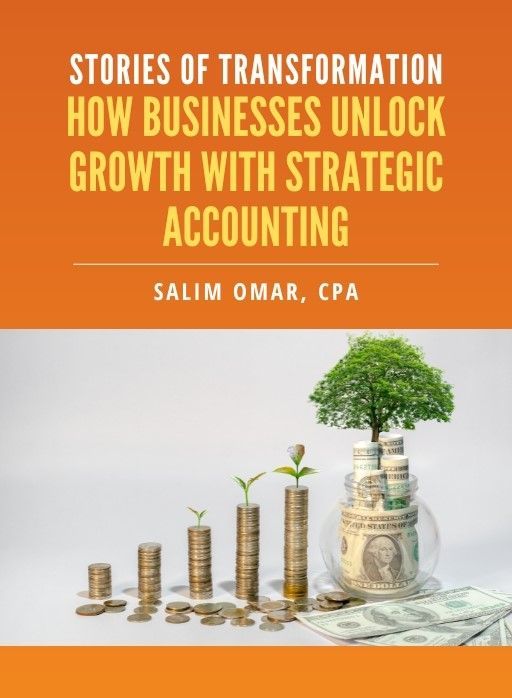Tax-Savvy Exit Planning: Selling Your Business Without Losing Half to Taxes

Selling a business isn’t just about getting the highest offer. It’s about keeping what you’ve earned. Without a smart exit strategy, you could end up giving a shocking chunk of your sale to taxes—sometimes 30% or more. That’s not a rounding error; that’s your retirement, your next venture, your family’s future.
At Straight Talk CPAs, we’ve helped countless business owners walk away from a sale with their heads high and their bank accounts intact. And we’ve seen just as many folks learn the hard way what happens when taxes get overlooked in the planning process.
So let’s break this down. Capital gains. Installment sales. Stock vs. asset deals. Timing. If you’re thinking about selling—next month, next year, or in five years—this guide is your starting point.
Asset Sale vs. Stock Sale: Why Structure Matters
Most business sales fall into one of two buckets: asset sale or stock sale (or membership interest sale, for LLCs). The difference isn’t just legal—it’s tax.
Asset Sale
In an asset sale, you’re selling individual business assets—equipment, inventory, goodwill, customer lists, you name it. Buyers love this structure because it allows for depreciation write-offs and they avoid unknown liabilities.
But for sellers? Ouch.
Why? Because the IRS doesn’t treat all assets equally. Tangible assets like equipment can trigger ordinary income tax. Intangible assets like goodwill are taxed at capital gains rates. And if your business is a C corp, you could get hit twice—once at the corporate level and again personally when you distribute the proceeds.
Stock Sale
In a stock sale, the buyer takes everything—stock, liabilities, history. It’s simpler and often more tax-friendly for sellers because the entire gain is usually taxed at the capital gains rate.
The catch? Buyers may shy away unless the business is squeaky clean. That’s where a well-documented due diligence file and clean financials help boost confidence and shift negotiations in your favor.
Bottom line: A stock sale might be better for you—but the buyer needs convincing. That’s where a good CPA team steps in.
Installment Sales: The Power of Timing (and Patience)
Ever heard of installment sales? They’re a game-changer when used wisely.
With an installment sale, instead of getting the full purchase price upfront, you receive payments over time—typically years. That means you recognize gains gradually, matching your tax liability to your cash flow.
Let’s say you’re selling your business for $1.5 million. Rather than taking the full amount this year (and triggering massive taxes), you structure the deal to receive $300K a year for five years. You’ll only pay tax on what you receive annually, likely keeping you in a lower bracket and reducing exposure to the dreaded NIIT.
Installment sales also provide flexibility and can make the deal more attractive to buyers who don’t have millions in liquid cash.
But they’re not for everyone. If you’re worried about buyer default or just want to walk away clean, it might not be the right fit. That said, when trust and planning align, installment sales can save six figures—easily.
Timing Is Everything: Know When to Sell
One of the biggest tax mistakes business owners make? Selling at the wrong time.
What does “wrong” mean?
- Selling in a high-income year, pushing you into a higher capital gains bracket
- Not waiting long enough for favorable capital gains treatment
- Triggering state residency taxes due to relocation timing
A few timing strategies that can help:
- Defer to next year if this year’s income is already high
- Accelerate deductions or prepay expenses to
reduce taxable income in the year of sale
- Relocate to a tax-friendly state (like Florida or Texas)
before selling, if you're planning a move anyway
- Gift shares in advance to family or trusts as part of your estate plan (this one gets complex—talk to a CPA)
We’ve seen clients save hundreds of thousands just by pushing their deal into January or accelerating it into December. Tax strategy isn’t only about the “how”—it’s about the “when.”
A Real Example: How We Saved One Seller $600K
One of our clients owned a manufacturing business in the Midwest and was looking to retire. They had a buyer lined up offering $5.8 million. The original deal was structured as an asset sale, and our client was staring down a $1.9 million tax bill.
We restructured the deal as a stock sale with a partial installment, spread over four years. We also advised them to hold the closing until January to fall into a lower bracket due to retirement income drop-off.
End result? The final tax bill dropped to $1.3 million. That’s $600,000 saved, simply by rethinking structure and timing.
Final Thoughts: Don’t Let Taxes Dictate Your Exit
You’ve spent years—maybe decades—building your business. You deserve to walk away with as much of your hard-earned value as possible. Taxes will always be part of the picture, but with a smart plan, they don’t have to steal the spotlight.
Whether you’re looking to sell in 12 months or just exploring your options, our team at Straight Talk CPAs can help you map the path forward. From choosing the right structure to optimizing the timing and negotiating terms that work for both parties, we make sure you keep more of what matters.
Because at the end of the day, selling your business isn’t just a financial transaction—it’s a legacy move. Let’s make it count.
Free eBook:
Stories of Transformation


Salim is a straight-talking CPA with 30+ years of entrepreneurial and accounting experience. His professional background includes experience as a former Chief Financial Officer and, for the last twenty-five years, as a serial 7-Figure entrepreneur.




